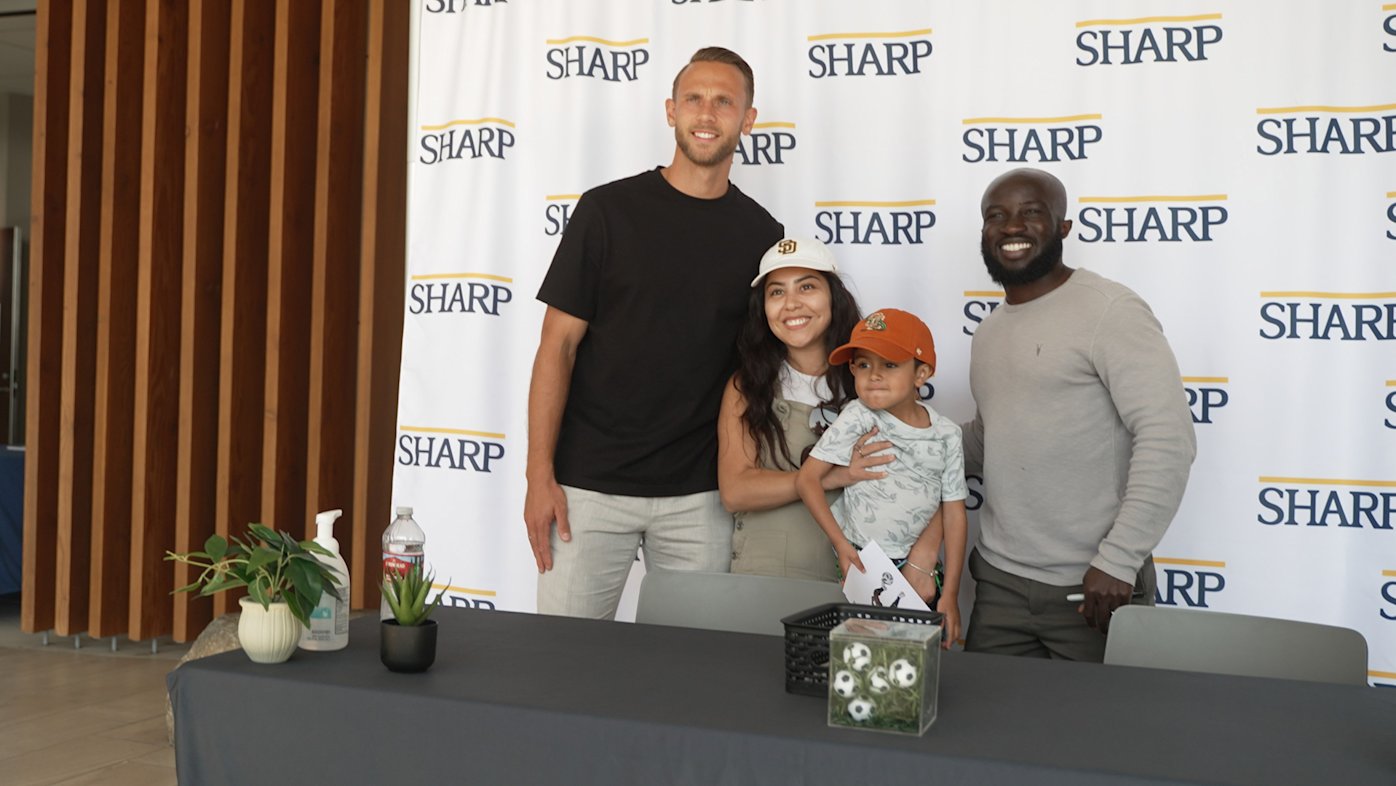
San Diego FC players visit babies at Sharp Chula Vista
Marcus Ingvartsen and Ema Boateng shared sweet moments with their tiniest fans pairing the spirit of soccer with the pride of community.
Sometimes working out requires time we don’t always have. But then again, working out doesn’t always have to take a lot of time. Sometimes, it can even be fun.
Dr. Lucius Pomerantz, an orthopedic surgeon, upper extremity specialist and exercise enthusiast affiliated with Sharp Chula Vista Medical Center, answers 5 questions for “weekend warriors” — sports enthusiasts who participate in limited, high-intensity exercise.
1. Individuals who identify as “weekend warriors” claim it’s just as successful to incorporate short, high-intensity workouts on the weekends, rather than regular, moderate workouts each day. Do you agree?
I think there is growing evidence that low-volume, high-intensity interval training has clear health benefits; however, research does not clearly show one method of exercise to be better than the other. Instead, the individual has the option to decide what method they prefer and they will get a health benefit so long as they stick to it. Personally, given my busy schedule, I like the idea of short, high-intensity workouts.
2. Does working out only twice a week allow enough time to develop proper techniques?
When working with certified personal trainers who are aware of proper form, twice a week is enough time to develop the correct techniques needed to work out safely, so long as the goals are long-term. A person risks injury if he or she rushes training and exceeds beyond what technique allows.
3. What types of injuries can occur when the body is not properly warmed up or conditioned?
There is growing evidence that sport-specific neuromuscular warm-ups decrease injuries. The best example is watching Stephen Curry of the Golden State Warriors warm up — he performs a series of basketball-type motions incorporating the central nervous system, such as dribbling with both hands, unorthodox shots and combinations of movements that will be used in the game, not just stretching or jogging. Injuries are specific to the sport and are usually muscle strains and joint sprains; however, they can be more severe, such as ligament or tendon ruptures or even fractures.
4. Have you seen common ligament tears or other injuries associated with improper form used when working out?
The most common sports injury I see in my practice as an upper extremity surgeon is rotator cuff injuries. These often result from improper form or excessive weight creating a traumatic event, but can also be caused by excessive focus on too few exercises. This results in muscle imbalance and the altering of normal shoulder mechanics. This can then cause shoulder issues. An example is being overly focused on bench press and not balancing this out with exercises to strengthen the opposite muscle groups. Another very common injury is low back strains and other similar injuries from lifting with poor form.
5. Why is it suggested that the most important muscle is your core? Do you agree?
I somewhat agree. The core includes muscles around the lower back and pelvis, including the gluteal, hip, abdominal and lumbar muscles, which are crucial to sport activities. All sport movements involve “kinetic linkage of motion.” For example, when you throw a baseball, energy is transferred from your legs to your arm via your core. Just holding an object above your head requires activation of the core for stabilization and balance. Lack of core conditioning could result in injury to the core as well as arms or legs as the kinetic linkage is disrupted. The core is often neglected by the casual gym-goer, but should be part of each person’s workout regimen.
It’s important for “weekend warriors” to approach the regimen safely and complement the routine with a balanced, healthy diet consisting of fruits, vegetables and lean protein. Before beginning any routine, consult with your primary care doctor.
For the media: To talk with a Sharp doctor about effective workout plans for “weekend warriors,” contact Erica Carlson, senior public relations specialist, at erica.carlson@sharp.com.

Our weekly email brings you the latest health tips, recipes and stories.